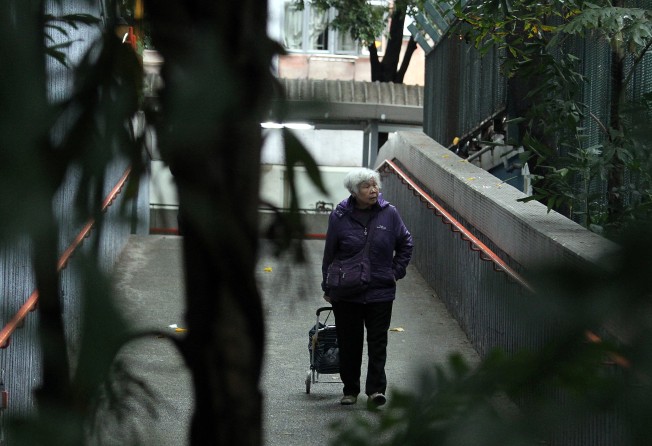If society has a duty to ensure needs of Hong Kong’s elderly are met, money should not be the priority
Public opinion seems to support a universal pension, but imagination and political will are needed to make it happen

The continued dispute between opponents and proponents of a “universal” pension scheme raises a question: are Hong Kong people willing to contribute to retirement funds for one another?
Professor Nelson Chow Wing-sang, architect of the so-called “regardless of rich or poor” (non-means tested) model as a result of a government-commissioned study – only to be criticised by the chief secretary for lacking expertise on public finances – said on TV, “it is not a money matter; it is about ethics and morals”.
In a 2015 telephone survey under a funded research on Hong Kong’s rule of law culture in which I took part, 90 per cent of respondents agreed that “ensuring every person a basic level of living standard should be the goal of a society”. Nearly 60 per cent disagreed that “one is poor because he or she is lazy”.
These responses indicate that our social values are amenable to supporting a retirement system that ensures everyone’s basic needs. In fact, it is hard to say that HK$3,230 – the monthly amount that Chow proposes – is anything other than basic. A ubiquitous – yet disquieting – scene, where senior citizens laboriously push trash-filled carts in every nook and cranny of Hong Kong, speaks of the imperative of plugging a yawning social gap.
An oft-cited criticism of a “regardless of rich or poor” universal pension scheme is that it will benefit everyone – including Hong Kong’s richest man, Mr Li Ka-shing, for example. That seems to be premised on the idea that people are by nature opportunistic. Hence, if they are entitled to apply for a monthly pension, they will do so regardless of their economic needs.
Yet, in our survey, more than 50 per cent of the respondents disagreed with the statement that “most people would try to take advantage of others if there is a chance”. While this question did not exactly address the issue of a universal pension, it shows many do have faith in the integrity of Hong Kong people.
Public opinion seems to support a universal pension. According to a 2014 survey commissioned by researchers from the Hong Kong Institute of Education, 57 per cent of respondents staunchly supported a universal pension, compared to 8 per cent diehard opponents. Some 82 per cent supported a universal pension scheme jointly funded by the government, employers and employees. Yet, the figure slipped to 63 per cent if funds would come from taxpayers alone.
That is the aspect on which the government has focused: that a “regardless of rich or poor” scheme is unsustainable if not for substantive tax increases, including income tax.
Meanwhile, a group of academics has put forward a proposal based on multi-pronged funding models that emphasises “universal entitlement” instead of the divisive label of “regardless of rich or poor” or “economic needs”.
After all, if we believe society has a duty to ensure that everyone’s basic needs are met, perhaps money is not the most important matter, but imagination and political will.
Dr Karen Lee is assistant professor in the Institute of Education’s department of social sciences